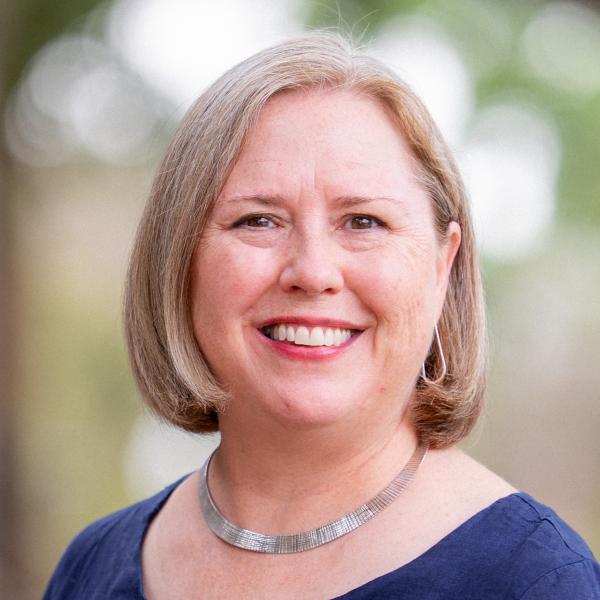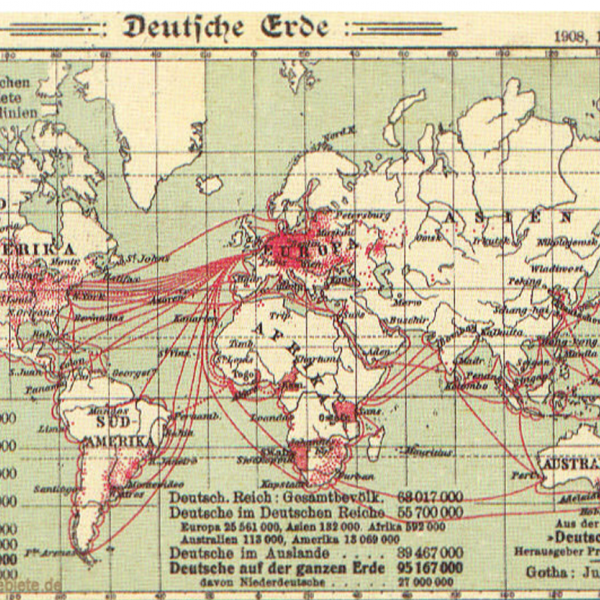Erin McGlothlin is responsible for the university’s liberal arts curriculum as well as every phase of student life, from admission through graduation and onward to postgraduate success. She is passionate about the value of a liberal arts education and seeks to create challenging, enriching educational experiences for undergraduates across all areas of study.
In her scholarly work, McGlothlin conducts research in the areas of Holocaust literature and film and German-Jewish literature. In addition to a comparative focus on Holocaust representation, her research interests include postwar and contemporary German literature, Jewish Studies, narrative theory, autobiography, and the graphic novel. She is the author of Second-Generation Holocaust Literature: Legacies of Survival and Perpetration (2006) and The Mind of the Holocaust Perpetrator in Fiction and Nonfiction (2021), the latter of which earned the 2023 Sybil Halpern Milton Book Prize for the best book in Holocaust Studies. Further, she has co-edited three volumes: After the Digital Divide?: German Aesthetic Theory in the Age of New Digital Media (2009, with Lutz Koepnick), Persistent Legacy: The Holocaust and German Studies (2016, with Jennifer Kapczynski), and The Construction of Testimony: Claude Lanzmann's Shoah and its Outtakes (2020, with Brad Prager and Markus Zisselsberger). Additionally, she has published on fictional and non-fictional works of Holocaust literature and film as well as on such topics as the generational discourse on the Holocaust, the narrative structure of Holocaust literature and film, perpetrator representation and perpetrator trauma, and ethical questions related to Holocaust representation.
McGlothlin was a research fellow in residence at the US Holocaust Memorial Museum’s Center for Advanced Holocaust Studies in 2006, was a co-leader with Anita Norich of the Center for Advanced Holocaust Studies Hess Faculty Seminar on Holocaust Literature in January 2014, and was an instructor at the Summer Institute on the Holocaust and Jewish Civilization at Northwestern University in 2016, 2018, and 2021. She has received additional research grants from the Center for Advanced Holocaust Studies, the Fulbright Foundation, and the Washington University Center for the Humanities. In Summer 2010, she was a DAAD Guest Professor at the Universities of Dortmund and Paderborn. She is also co-editor (with Brad Prager) of the Camden House book series Dialogue and Disjunction: Studies in Jewish German Literature, Culture, and Thought. She is also on the editorial boards of Holocaust and Genocide Studies and Nexus: Essays in German Jewish Studies. Together with Principal Investigator Stuart Taberner (University of Leeds), she serves as Co-Investigator for the project "Rethinking Holocaust Literature: Contexts, Canons, Circulations," which is funded by a $1.3 million grant from the United Kingdom Arts and Humanities Research Council. As part of this project, McGlothlin and Taberner have been appointed co-editors of The Cambridge History of Holocaust Literature, which will include contributions by over forty international experts in Holocaust representation and which aims to set the path of the scholarly discourse on the literature of the Holocaust for the next twenty-five years.
With Anika Walke, McGlothlin created a year-long, first-year Ampersand seminar on the Holocaust that culminates in a study trip to Holocaust-related sites in Germany, Poland, and Lithuania.



